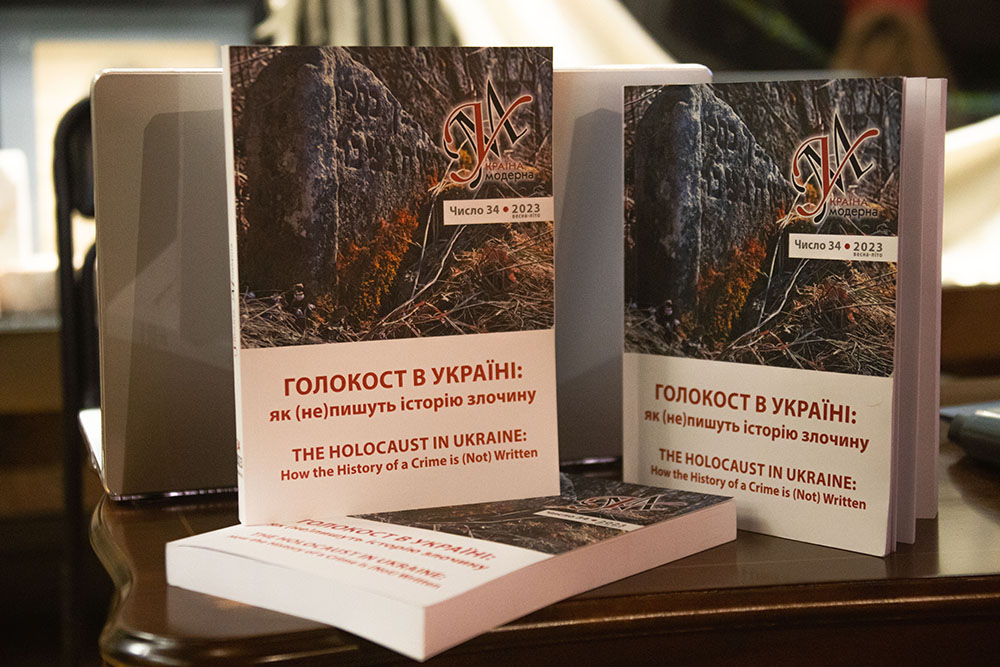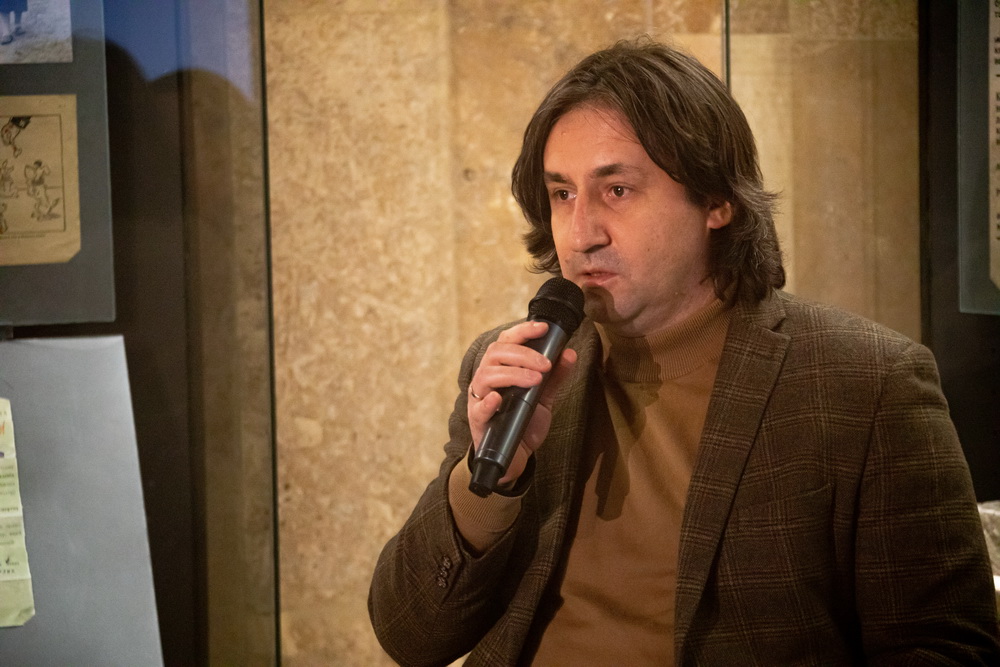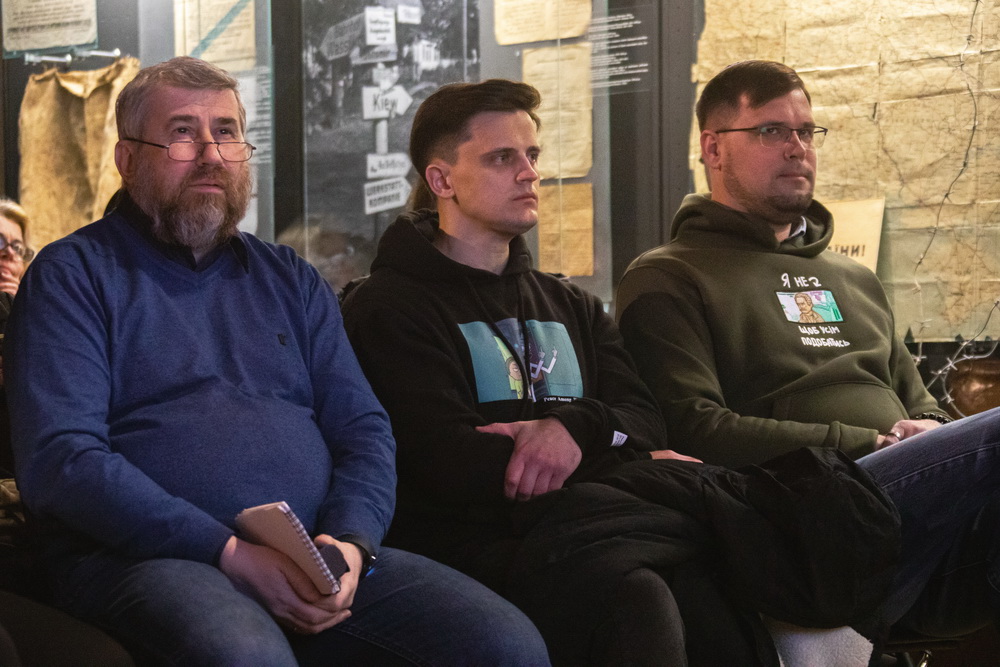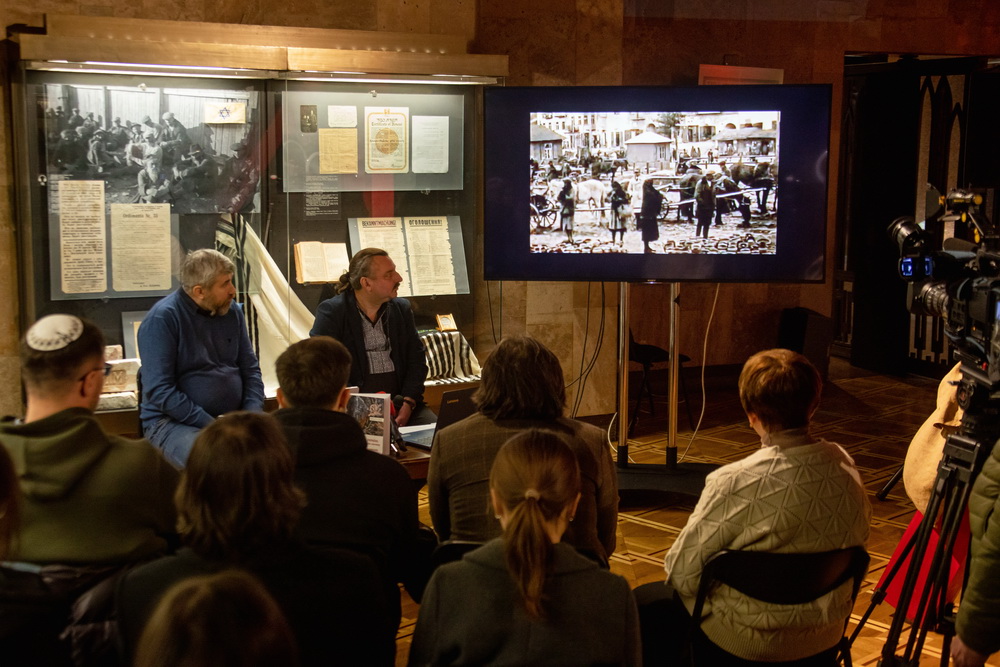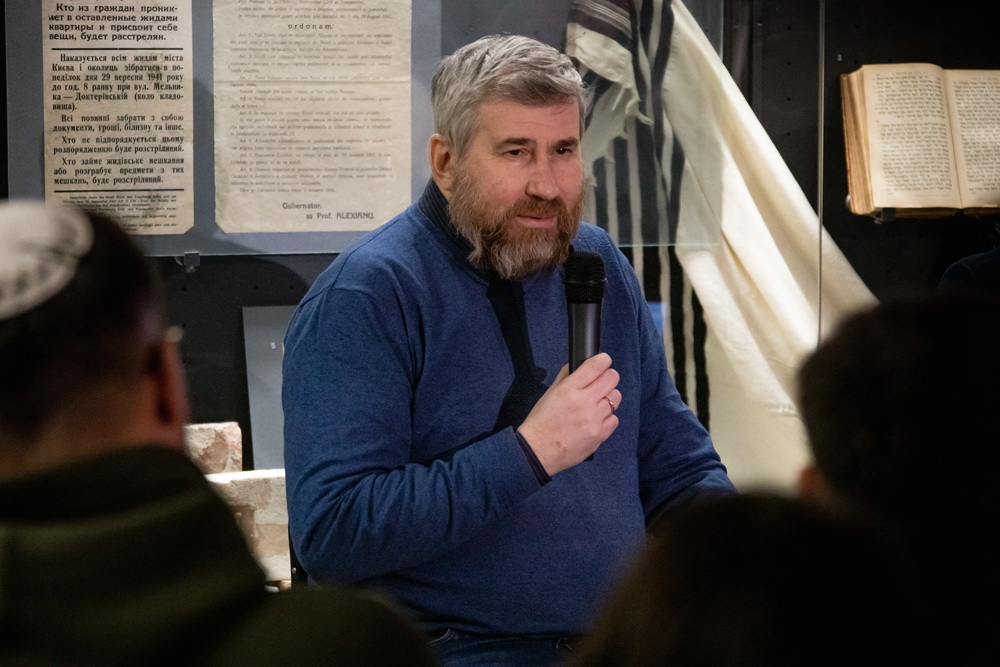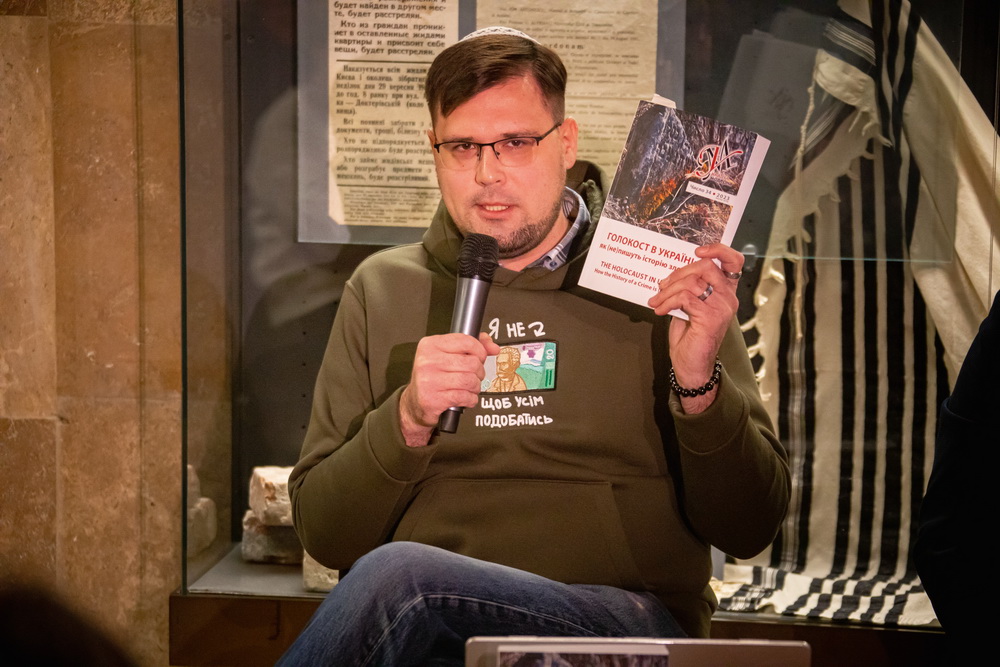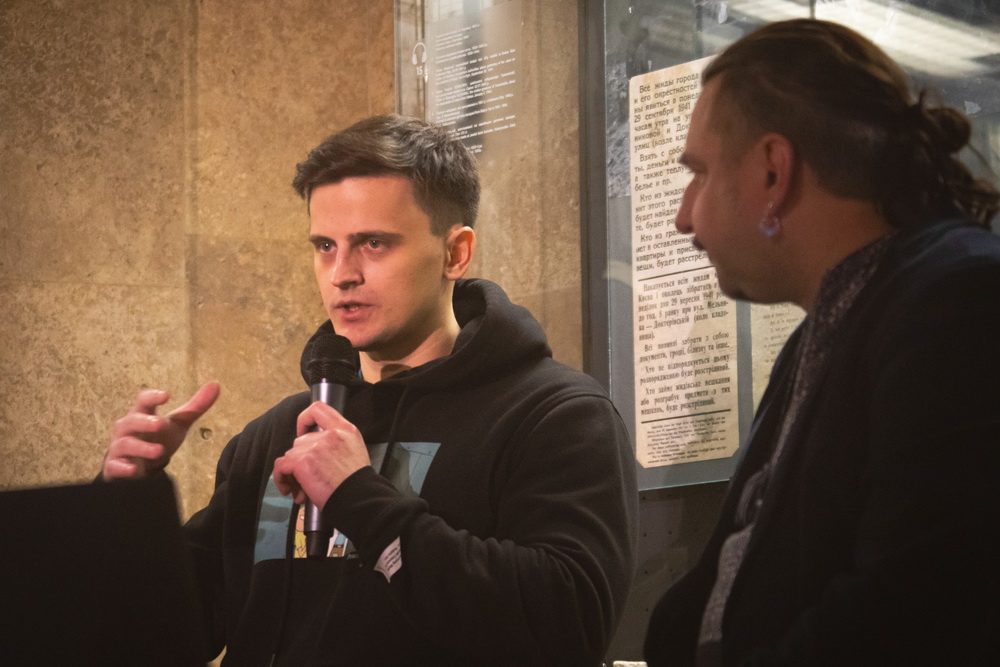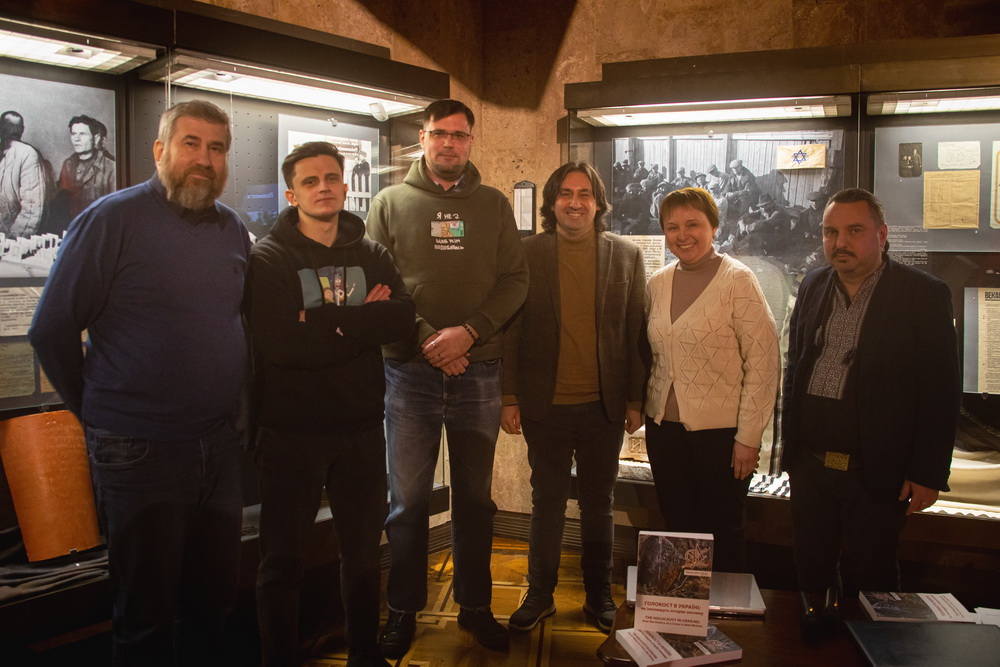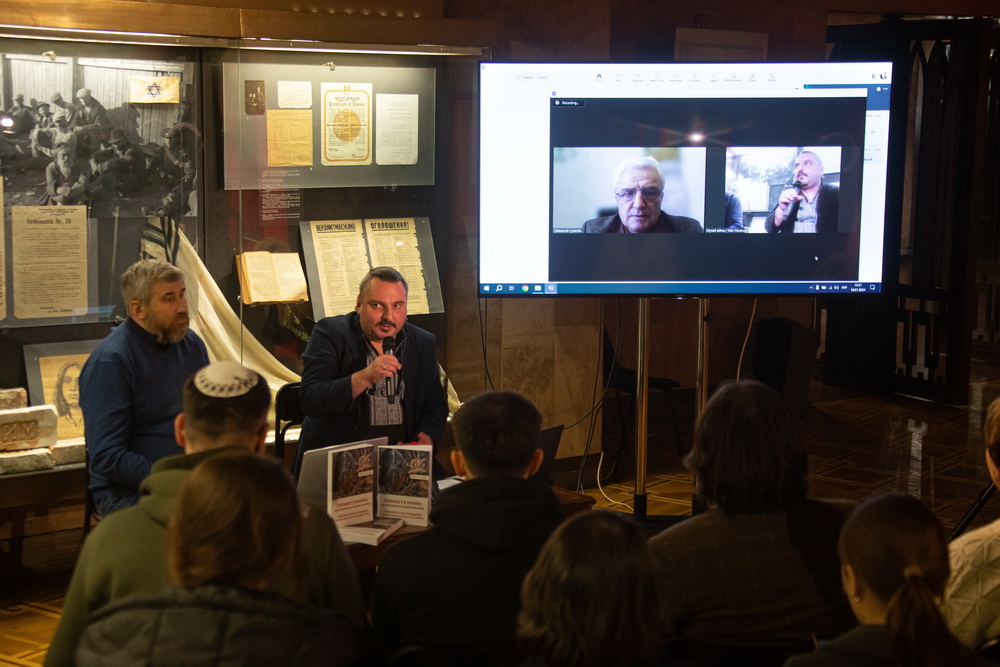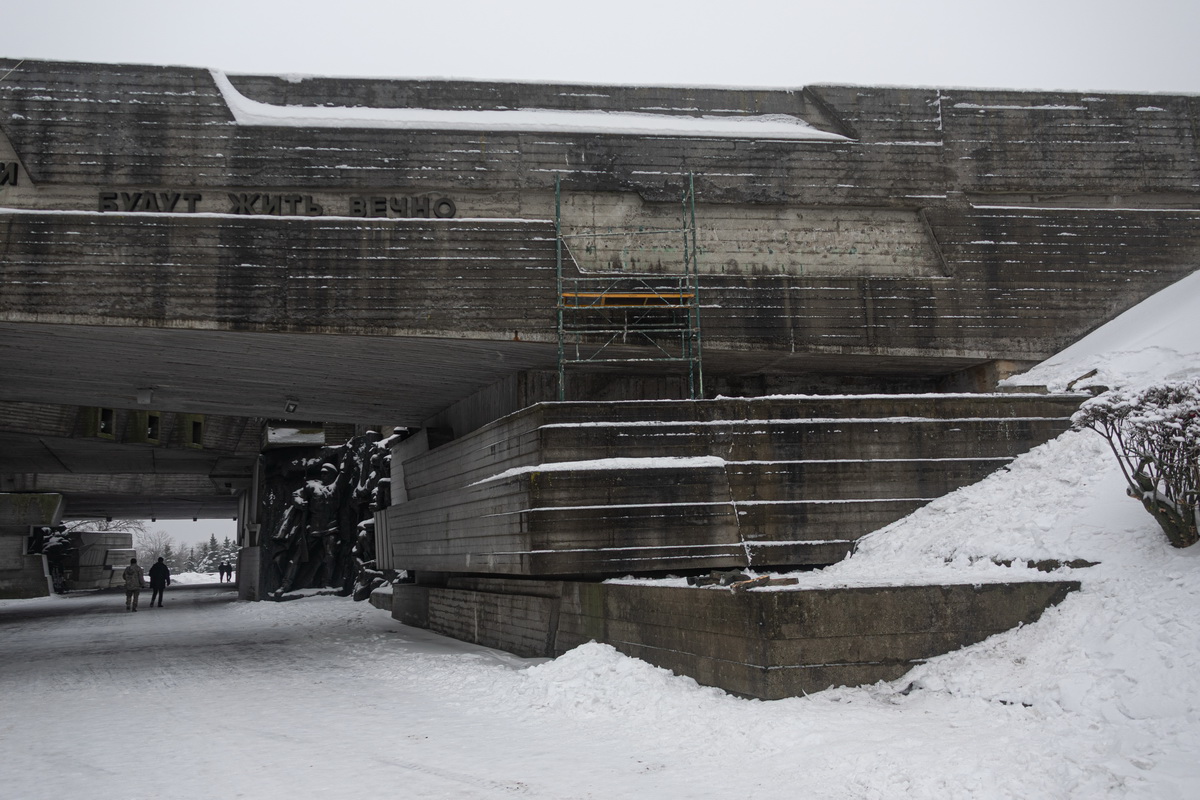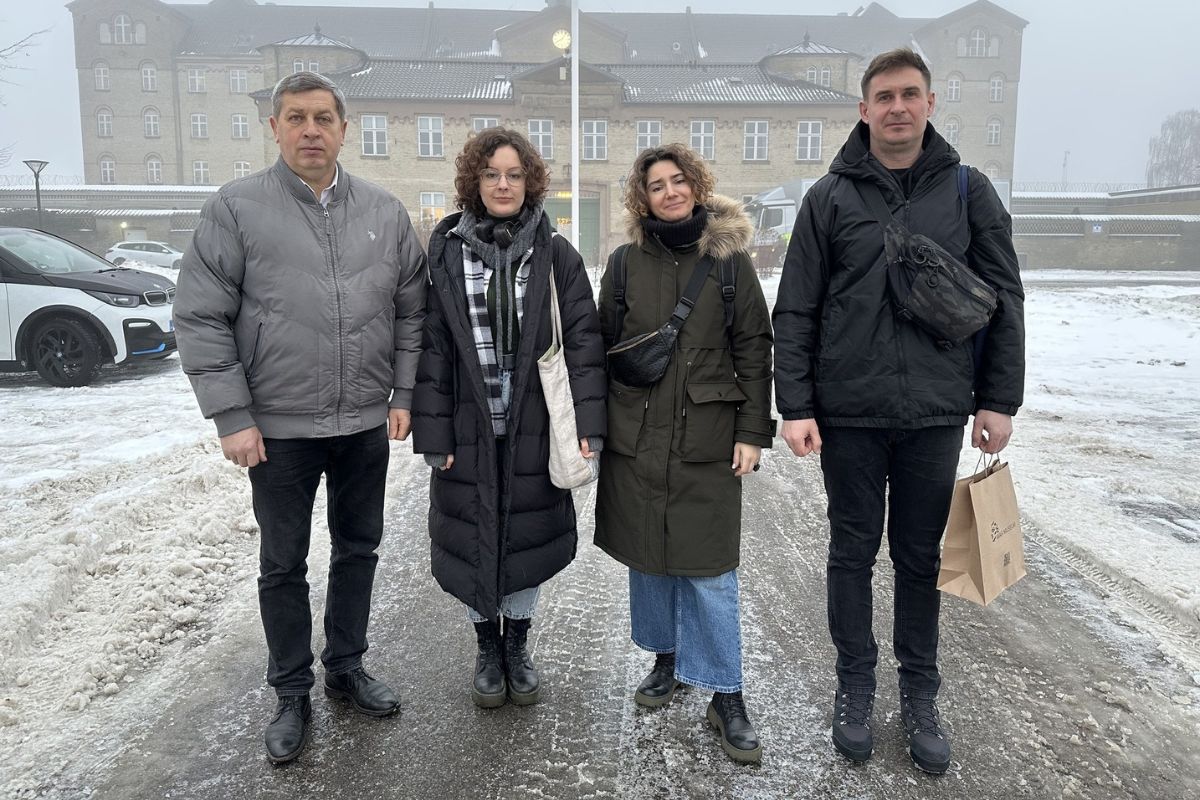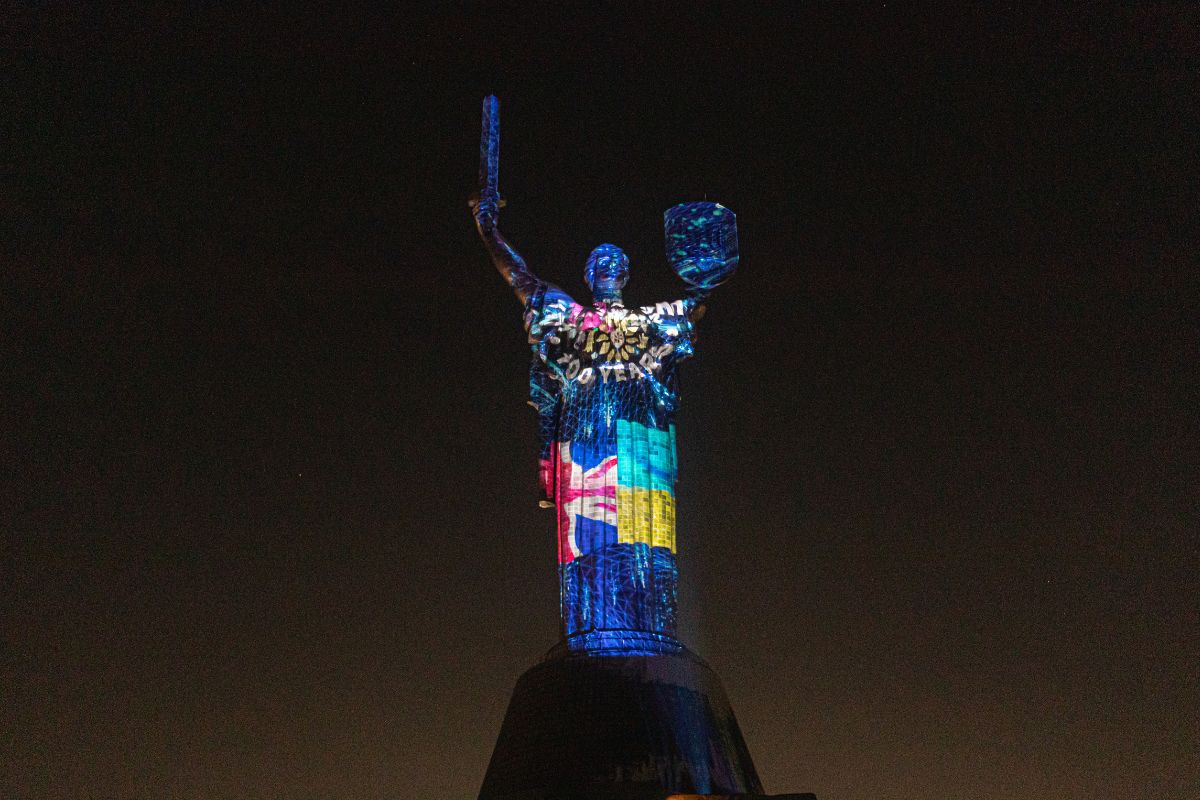On the occasion of the International Holocaust Remembrance Day, the War Museum had a discussion “The Holocaust in Ukraine as a Factor of Destruction of Ethnic Diversity. Museum Aspects”. The meeting also included a presentation and discussion of a special issue of the Ukraina Moderna magazine entitled “The Holocaust in Ukraine: How the History of the Crime is (not) Written” (No. 34, 2023). The intellectual magazine Ukraina Moderna is jointly published by the Ivan Franko National University of Lviv and the Canadian Institute of Ukrainian Studies in Toronto.
In his speech, the editor-in-chief, Petro Dolganov, noted that the idea of the special issue arose long before the full-scale invasion and that many of its articles were written earlier. He also stated that this issue could have had other emphases objectively.
Anatolii Podolskyi, director of the Ukrainian Center for Holocaust Studies, expressed satisfaction that most authors are young researchers. He focused on the methodology of studying the history of the Holocaust (involving oral testimony with a critical attitude towards it), as well as on changing approaches to Raul Hilberg’s triad of “perpetrators-victims-bystanders”. The historian drew parallels with the present when Ukrainian citizens are faced with a difficult choice while remaining in the Russian-occupied territories.
Professor Oleksandr Lysenko, a researcher at the Institute of History of Ukraine of the National Academy of Sciences of Ukraine and a member of the Academic Council of the Museum of War, in his online video interview, focused on the importance of regional studies of the Holocaust, gender peculiarities in the process of genocide, and the “childhood experience” of tragedies. He also created analogies with the present, emphasizing that studying the history of the Holocaust will help us more effectively investigate and overcome Russia’s genocidal practices against Ukrainians.
The moderator of the meeting, Roman Kabachiy, a senior researcher at the Museum, presented footage from the documentary movie “The Priest of Majdanek” by Grzegorz Linkowski about the heroic deeds of Father Omelian Kovch from Przemyślany (Peremyshliany), a Jewish savior who died in the Majdanek concentration camp in Lublin. In the film, the priest’s daughter, Lida, shares her childhood memories of her father and his activities, and it is these features of oral history that researchers should pay attention to, according to the moderator. The scholar also cited the example of the memoirs of Jews who survived as children in the “dead loop” camp in Pechora in the Vinnytsia region, where about 10,000 people from the town of Tulchyn died of hunger and cold. The memoirs, recorded in the 1980s, were donated to the War Museum in 2023.
Svitlana Datsenko, head of the Museum’s Department of Socio-Humanitarian Components of War, spoke about museum artifacts related to the Holocaust, how the collection was formed, and the stories behind the exhibits, She also talked about the collections digitized and presented on the Museum’s website, paying particular attention to the “Righteous Among the Nations from Ukraine” collection and urging the meeting participants and online viewers to share their stories and materials on the Holocaust with the Museum.
Yurii (Amir) Radchenko, co-founder of the Center for Interethnic Relations Research in Eastern Europe, guest lecturer at the International Interdisciplinary Certificate Program in Jewish Studies, and one of the authors of the special issue of Ukraina Moderna, explained why he chose this particular topic (“The Karaite Population, the OUN (M) (part of the Organization of Ukrainian Nationalists that supported Andriy Melnyk), and the Holocaust in Kyiv”) and commented on some of the theses voiced by the previous speakers.
Another writer of this issue, Daniil Sytnyk, presented his research “The Ukrainian Police and the Holocaust in Kyiv, 1941-1943”. The researcher emphasized that not only Ukrainians enlisted in the police force and that there were often former communist among the officers. He also shared his plans to expand his PhD research subject matter.
At the end of the events, Petro Dolganov urged those interested in the special issue of Ukraina Moderna to order its e-version.
